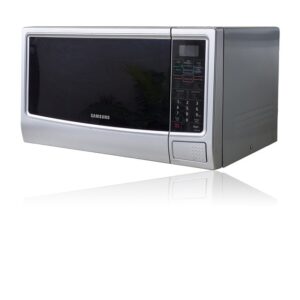Electrical safety is of utmost importance in every household, and one crucial component that enhances safety is the ground fault circuit interrupter (GFCI).
This article aims to address the question: Does a refrigerator need GFCI protection? Yes, it is highly recommended to have GFCI protection for refrigerator circuits.
By understanding GFCIs, examining electrical requirements for refrigerators, and assessing potential safety risks, we can make an informed decision about whether GFCI protection is necessary for refrigerators.
Understanding GFCIs
A GFCI, or ground fault circuit interrupter, is an electrical device designed to protect against electrical shocks and prevent electrical fires.
It works by continuously monitoring the electrical current flowing through a circuit. If it detects an imbalance in the current, such as a ground fault or a leakage, it quickly interrupts the circuit, shutting off the electricity.
GFCIs are typically required in areas where water and electricity are in close proximity, such as bathrooms, kitchens, and outdoor outlets.
They offer several benefits, including enhanced personal safety and reduced risk of electrical accidents.
Electrical Requirements for Refrigerators
Refrigerators are essential kitchen appliances, and understanding their electrical requirements is crucial.
Modern refrigerators consume a significant amount of power, typically ranging from 100 to 800 watts. Electrical codes and regulations dictate the grounding requirements for appliances, ensuring that they are safely connected to the electrical system.
While grounding is necessary, the specific requirement for GFCI protection may vary depending on local electrical codes and regulations.
GFCI and Refrigerator Safety
The kitchen is a high-risk area for electrical hazards due to the presence of water and various appliances.
Refrigerators, in particular, pose potential risks due to their water supply lines and the possibility of leaks.
GFCIs play a crucial role in preventing electrical shocks in such scenarios. By quickly interrupting the circuit, they protect individuals from harm and minimize the risk of electrically-induced accidents.
Considering the potential risks associated with refrigerators and water, GFCI protection for refrigerator circuits is worth serious consideration.
Read also my article: Keep Your Fridge Running: Solutions for Preventing GFCI Tripping.
Do Refrigerators Need GFCI Protection?
The answer to whether refrigerators need GFCI protection depends on various factors, including electrical codes, regulations, and personal preferences.
In most cases, GFCI protection is required for kitchen outlets, which may include the refrigerator circuit. However, exceptions and exemptions exist for dedicated appliance circuits, particularly refrigerators.
Although GFCI protection may not be mandatory for refrigerator circuits, it is highly recommended for added safety.
Assessing the necessity of GFCI for refrigerators requires considering factors such as the age and condition of the electrical system, specific electrical codes in your location, manufacturer recommendations, and personal safety preferences.
Conclusion
Electrical safety should be a top priority in every household, especially in areas where water and electricity are present together.
While GFCI protection is essential for kitchen outlets, the need for GFCI protection specifically for refrigerators may vary depending on factors such as local electrical codes and personal preferences.
Considering the potential risks associated with refrigerators and the added safety GFCIs provide, it is advisable to prioritize GFCI protection for refrigerator circuits.
Making an informed decision based on the specific circumstances of your home will contribute to a safer and more secure living environment for you and your family.

